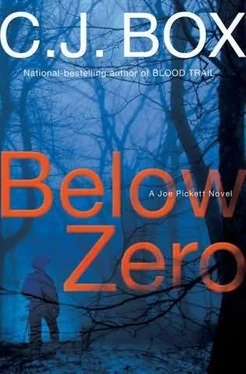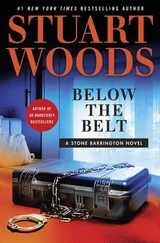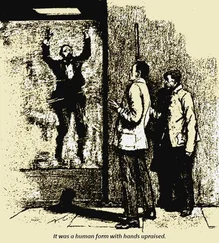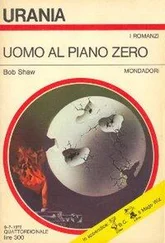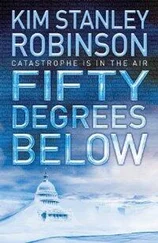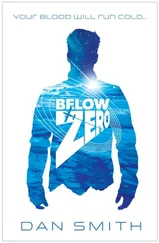Robert said, “You’re drifting.”
“No, I’m not,” Stenko said. “I know where Leo is with all my money. He’s on my ranch, the son-of-a-bitch.” To her, he said, “Sorry for the language.”
She shrugged, totally confused.
Robert shook his head, muttering, “A ranch. You own a ranch. What else do you own?”
Stenko said, “A lot.”
SHE’D BEEN SLEEPING SOUNDLY in the roomy back seat when she was awakened by Robert shouting, “Dad? Dad, what’s wrong?”
AND SHE COULD HEAR Robert now, through the wall. Something about Stenko’s morphine. “Then take more!” Robert yelled. “Take as much as you need to!”
She’d gotten a glimpse at Stenko as he staggered into the bathroom. He’d looked back at her. His face was white, his eyes rimmed red. His mouth was twisted in pain, but he still managed to smile at her and gesture with his hand that he’d be right back. The way he bent forward as he walked made her think it was his stomach that was hurting him.
The bathroom she was in was filthy, with grime on the floor, an overflowing trash can, and the strong ammonia smell of urine from the stall. She imagined the men’s was just as dirty, and she felt sorry for Stenko, who sounded like he was probably clutching the toilet, knees on the floor.
She heard Robert say harshly, “For Christ’s sake, Dad. Hang in there already. We’ve got too much to do here.”
And she thought: What if he dies right there? What would Robert do with her? She thought about the look on his face that morning in the car, his wild eyes, the way he beat that drum solo on the dashboard. It was either that or long hours of pouting and sarcasm. Plus the way he sometimes leered at her, his eyes pausing on her breasts. She didn’t want to be alone with Robert.
She fished the TracFone out of her jeans. She hadn’t turned it on since the night before, when she’d made contact. It seemed like forever before the phone grabbed a signal, showed strong bars.
She typed:
Sherry, r u there?
Cheyenne
JOE HIT THE NORTHERN OUTSKIRTS OF CHEYENNE MID-AFTERNOON. He was traveling south on I-25 when he saw the first of many concentric circles of massive new homes. He also saw more grazing horses than had likely ever been there when the capital city was the hub of the Union Pacific and home to dozens of wealthy ranchers in the 1880s and 1890s, when the west was new.
He was running late. Too much time in the Hole in the Wall.
Special Agent Chuck Coon was getting up to leave and was obviously ticked off when Joe walked into The Albany downtown. The place was old and dark, with private booths. The building was in the shadow of the restored Union Pacific depot. Between the lunch and dinner crowds, The Albany was devoted to serious drinkers and none of them even turned around and looked at Joe as he said, “Sorry I’m late, Chuck, please sit back down.”
Coon had stripped off his tie and loosened his collar, but Joe thought there was no one with a shred of intelligence in the bar who wouldn’t look at him and say, “FBI.” Coon had close-cropped brown hair, small features, and a boyish, alert face that didn’t wear his impatience well.
Joe slid into the booth across from Coon.
“I can’t spend much time,” Coon said, looking nervously around the bar before sitting back down. “I told the secretary I had a podiatrist appointment. I don’t know why I said that. There’s nothing wrong with my feet.”
“I won’t waste your time then,” Joe said. “Here’s the number.” He slipped a page from his notebook across the table with the number of April’s cell phone.
Coon didn’t pick it up. “I told you, Joe. I can’t seek a tap unless we get approval to open up an investigation. I’m sorry you had to drive so far to hear that in person.”
Joe nodded but forged on. “I’ve got other business this afternoon, but since I’m here at least you can answer some questions though, right? So I know more about this?” He tapped the notebook page.
Coon sighed, shot out his wrist, and looked at his watch.
“I’ll be quick,” Joe said. “First, tell me if it’s possible to pinpoint the location of a cell phone user. I mean, assuming you’ve got the court order and everything’s aboveboard.”
“The short answer is yes,” Coon said. “The long answer is what screws us up all the time.”
“Meaning?”
“When a cell phone is turned on, it has to reach out and grab a signal before you can make a call. When it connects with a cell tower, it’s referred to as a ping. The telephone providers can key on a specific number and they can pinpoint the location of the phone based on which cell tower got the ping.”
“Great,” Joe said, smiling.
“There is also a GPS feature in a lot of the newer phones. Most people don’t even know their phone is also a GPS device. We’re waiting for someone to come up with software that blocks the signal, but so far no one’s come up with an easy system. So we’ve got two ways to track down where a call comes from, the ping and the GPS if the phone has one.”
“Even better,” Joe said.
Coon looked around the bar again to see if anyone was listening to him. Satisfied, he leaned toward Joe. “The technology we’ve got is really good, but there are some real drawbacks out here in the middle of nowhere. Sometimes the cell towers are ten miles or more apart from each other. The mountains play havoc on the tower sight lines, for instance. It isn’t like a city, where there are towers everywhere. So even though we might pick up the ping we’ve been waiting for, we often can’t narrow the actual location of the phone down much more than a ten- or fifteen-mile radius of the tower. That’s twenty or thirty square miles-a big area, Joe.”
“What if the suspect is in a car?” Joe asked. “Can you track his movements by which cell towers get pinged along a highway?”
“Yes.” Coon demonstrated by running his index finger along the table as if the Formica were a map. He flicked his finger every couple of inches, going, “Ping, ping, ping, ping, all the way to Denver.”
“Let me ask you another question,” Joe said. “If you were given a printout of a text thread and all the specifics of the exchange, could you go to the phone company and trace where each phone was at the time?”
Coon frowned. “It’s possible, but it doesn’t always work. Like I told you, the companies only keep text messages on their servers a short time. Once the texts are trashed, they’re trashed.”
The way Coon said it made Joe suspicious. Joe said, “Okay, that’s the official FBI spin. But you can’t tell me that if you really wanted to, if someone involved in counterterrorism, say, wanted to track down both parties even weeks after the conversation that they couldn’t do it?”
Coon looked away. “I have no comment on that.”
“Which tells me what I need to know,” Joe said.
“I’ve got to get going, Joe. I’m sorry I can’t help you more.”
Joe said, “So the key is for the target to keep their cell phone on, even if they’re not making calls all the time. If the phone is on, it’s making these pings out there.”
Coon sighed, “Right.”
“What if the phone is only turned on to call or text, and then is turned off again?”
“That makes things real hard,” Coon said. “It means we’ve got to be on top of it when that cell phone is turned on to track it immediately, as it’s being used. Once it gets turned off, we lose any ability to know where it’s going.”
“What about the GPS feature?”
“Same thing. If the phone is off, the GPS is off.”
“Hmmm,” Joe said, rubbing his chin. He had a feeling April didn’t keep her phone on because of how she’d warned Sheridan not to call. If April didn’t want anyone to know she was in contact, she wouldn’t risk an errant ring or even a wrong number that would tip them off. So it made sense she’d power it up only when she wanted to communicate.
Читать дальше
